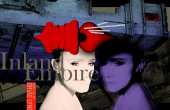KateK
Contributing writer for The Artifice.
Junior Contributor II
- Lurker
- ?
- Articles
1 - Featured
0 - Comments
6
- Ext. Comments
6 - Processed
0 - Revisions
0
- Topics
0 - Topics Taken
0 - Notes
0
- Topics Proc.
0 - Topics Rev.
0
- Points
121 - Rank
X - Score
58
Latest Articles
Latest Comments
| Little Red Riding Hood and Longinus: The Problems of Morality and "Great" Literature | |
Really enjoyed reading this. Never gave that enough thought . .. that animated shows have far more leeway in terms of “crossing the line.” So what would you consider to be the most transgressive non-animated sitcom? | Modern Propaganda: How Animated Comedies Can Change Our Opinions |
“Aggressively murky and unpolished” is a great way to describe Inland Empire. I also really liked your Magic Eye book comparison for Mulholland Drive. Great piece! | The Five Best David Lynch Films |
I agree with you in the sense that even a great actor cannot save a bad film (Dicaprio’s’s performance as Gatsby sure could not salvage that one) but the actor is still indispensable to a good film. It goes without saying that A Few Good Men, MInority Report, Rain Man, and Jerry Maguire would not have been the same without Cruise. I wouldn’t say the “dying” nature of movie stars, but the “diminishing” nature of movie stars. | Tom Cruise and The Dying Nature of Movie Stars |
I think it all depends on what the sex scene is trying to portray. In some instances, it is meant to disturb us (i.e. in Blue Velvet) and horrify us (i.e. in the French movie “Irreversible”: the scene where she is raped in the tunnel.) I understand that you are talking about sex, and not rape, but I still think it should be at the discretion of the director, provided that the actors consent to it and will not ultimately be scarred by their own performance (I’m thinking here of Last Tango in Paris, where Schneider and Brando both ended up feeling disgusted by agreeing to do the anal sex scene for Bertolucci.) | Passion in Film: Should Cinematic Displays of Affection be Toned Down? |
I just watched Inland Empire the other day, where the Rabbits sitcom plays a symbolic role for the esoteric emptiness of Hollywood, so it was really interesting to read this . . . how Rabbits is a clever and disturbing commentary on the psychology of sitcoms (I like how you wove in the different examples of I Love Lucy, etc.) It’s weird because, as you pointed out, there really is a “semiotics” of any sitcom that allows us to recognize it as such, even when the story focuses on a group of rabbits. And, as you also pointed out, we have a conditioned response to sitcoms- as long as there are certain cues and a predictable structure, their underlying absurdity is concealed. That’s what causes the Lost Girl to panic in Inland Empire- the dawning realization that we are controlled and manipulated by these structures whose meaning we fail to actually penetrate- namely because there is no meaning. (Lynch is all about torturing the viewer with surfaces.) The Rabbits are stand-ins for sitcom cutouts (aka “the sacrifice”) but they are also the people who control Hollywood (aka the “trickster” figures), and I think Lynch meant for them to possess this disturbing duality. By the way, I really liked your description of Lynch “leaving the sitcom in a purgatory state of underdevelopment.” That is really well said. | Making Sense of David Lynch: A Rabbits Tale |

Very interesting piece. I would say that literary analysis can never approach the sublimity of literature (or art in general, for that matter)- simply for the reason that it is too explicit, or looking to explicate something that is implicit, if that makes any sense . . . Although if you consider metafiction, the question is not that easy, since you are talking about a work that refers back to itself/is a part of its own analysis.
Anyhow, really liked your article because I learned so much I didn’t know! It also made me think of something Emily Dickinson once said: “I know nothing in the world that has as much power as a word. Sometimes I write one, and I look at it, until it begins to shine.”